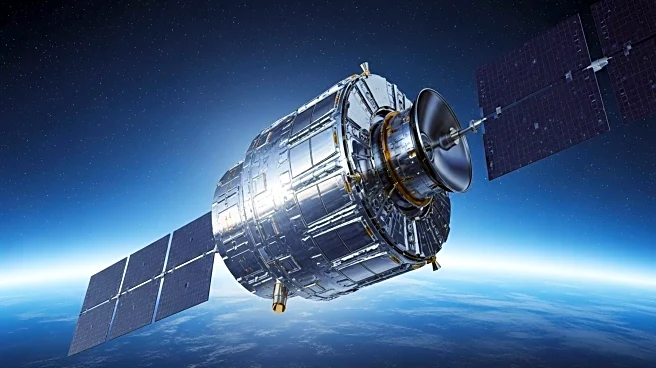What is the story about?
What's Happening?
European leaders are increasingly concerned about their reliance on the United States for space security, especially in light of the Trump administration's 'America First' policies. The Esrange Space Center in Kiruna, Sweden, is being developed as part of Europe's efforts to establish its own space ecosystem. Hermann Ludwig Moeller, director of the European Space Policy Institute, emphasized the need for Europe to double its investment in space to remain relevant in the global space race. The continent currently relies on French Guiana for satellite launches, but efforts are underway to expand capabilities within Europe, including test flights from Norway's Andøya Spaceport. The push for independence is also driven by concerns over Elon Musk's Starlink satellite system, which is crucial for Ukraine's defense against Russia.
Why It's Important?
The development of independent space capabilities is crucial for Europe to ensure its security and strategic autonomy. The reliance on U.S. space infrastructure has been a longstanding issue, and the current geopolitical climate has heightened the urgency for Europe to establish its own capabilities. This move could significantly impact the global space industry, as Europe seeks to compete with major players like the U.S., China, and Russia. The expansion of Europe's space infrastructure could also lead to increased commercial opportunities, as companies like SpaceX and Blue Origin have demonstrated the profitability of space ventures.
What's Next?
Europe is expected to continue investing in its space infrastructure, with potential orbital launches from continental Europe within the next year. Countries like Portugal, Spain, Italy, Germany, and the UK are exploring options to contribute to Europe's spaceport portfolio. The success of these initiatives could lead to a shift in the global space industry, with Europe becoming a more competitive player. Additionally, the development of independent space capabilities could influence defense strategies and international relations, as Europe seeks to reduce its reliance on U.S. security measures.
Beyond the Headlines
The push for independent space capabilities in Europe highlights broader issues of strategic autonomy and geopolitical tensions. The reliance on U.S. infrastructure has implications for Europe's defense policies and its ability to respond to global threats. The development of space capabilities also raises ethical and environmental concerns, as increased satellite launches could impact the Earth's orbit and space debris management. Furthermore, the expansion of commercial space ventures could lead to regulatory challenges and debates over the privatization of space resources.

















